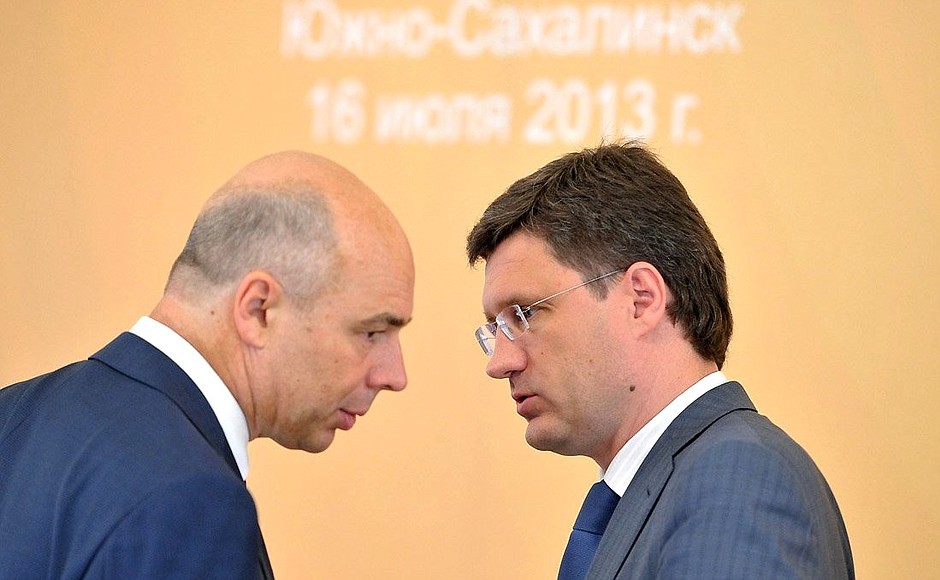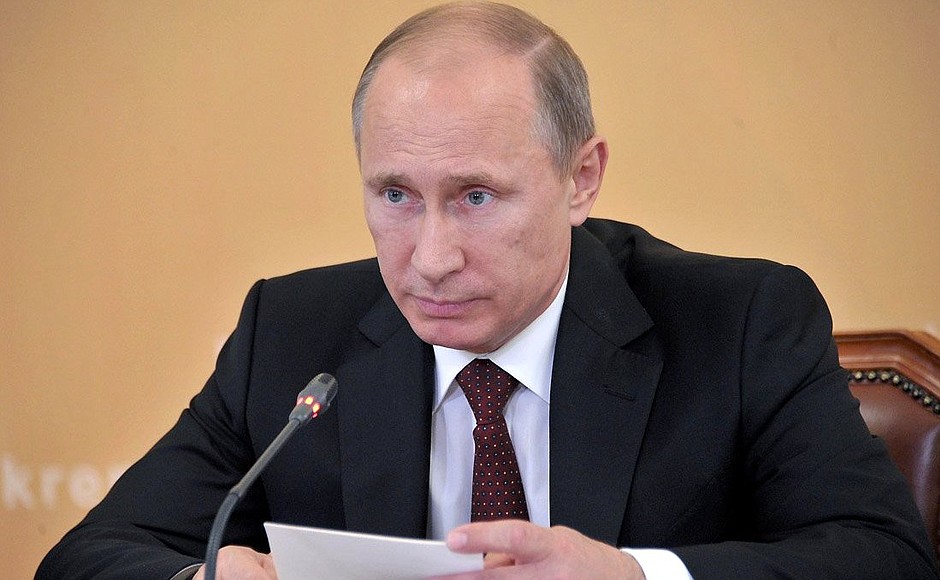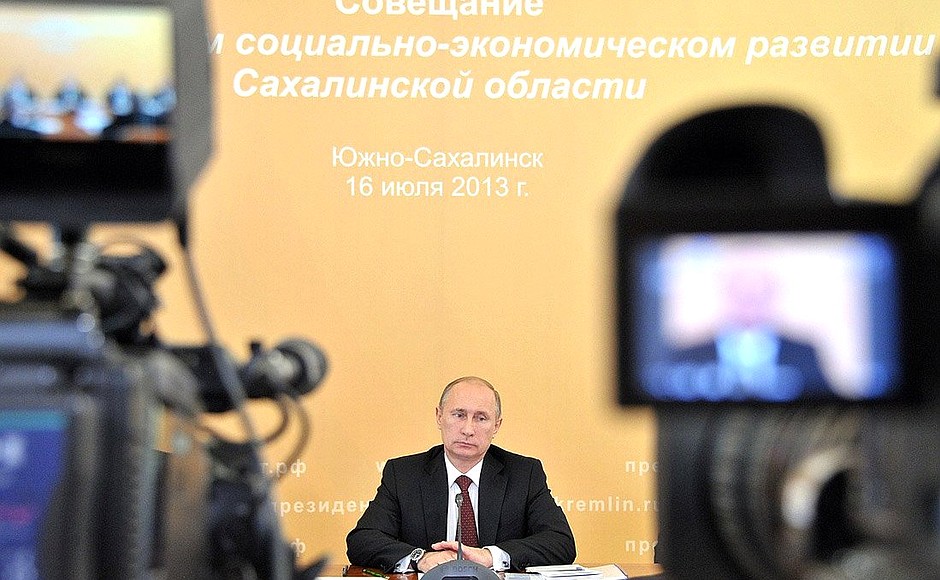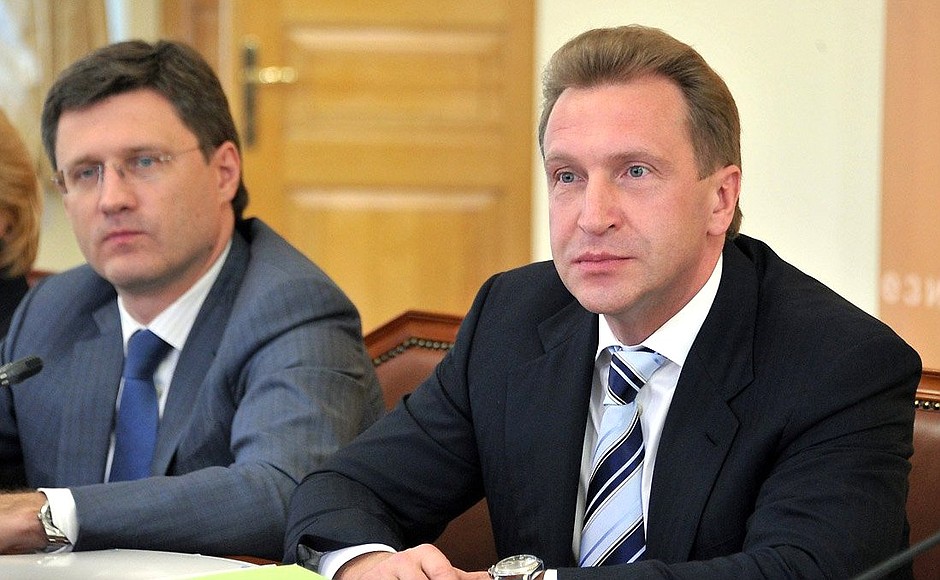Vladimir Putin: Good afternoon, colleagues.
Today, we will discuss Sakhalin Region’s social and economic development. A lot depends on the people here today in resolving these tasks. We will discuss the issues of concern to the region’s people, to our citizens living here.
Let me start by saying that confident growth in the Far East regions and putting their competitive advantages to effective use are among our overall national development priorities and are a condition for balanced growth in Russia’s economy and social sphere as a whole. This is why we are launching comprehensive programmes to develop the Far East, laying the infrastructure base for the region’s future growth, and encouraging promising business initiatives of great importance for the entire region.
“Confident growth in the Far East regions and putting their competitive advantages to effective use are among our overall national development priorities and are a condition for balanced growth in Russia’s economy and social sphere as a whole.”
Over recent years, Sakhalin Region has become a recognised platform for carrying out big, significant projects, primarily in the energy sector. What even by global standards is a solid oil and gas production centre has taken shape here, and it now sets the tone for the region’s entire economy.
Regional gross domestic product has more than doubled over the last 10 years and in per capita figures is now three times higher than the average in the Far East region and is in fourth place in Russia overall.
A good pace has been set. I note too, that the region has good potential in the processing sectors, in agribusiness, and in fisheries above all, and is demonstrating decent overall growth. Figures have dropped a little in all areas of late, it is true. Agriculture is still showing growth, but slightly less than what we seeing overall around the country.
Our task is to realise the region’s potential, support projects that will diversify the regional economy, create new jobs, bolster the social infrastructure, and do everything needed to give people steadily rising living standards.
Of course, the oil and gas sector plays a very big part in our plans. Sakhalin’s geographical location and its established ties with the Asia-Pacific countries and good experience of cooperation with big companies create a solid foundation for building what we could without exaggeration call a global energy hub here.
I am sure that this hub’s development over the coming years, and increased oil and gas production need to go hand in hand with work to build new refinery capacity and develop, including on Sakhalin itself, modern oil, gas, and gas-chemicals industries and companies that will work not just for the export markets, but above all for Russia’s own market.
“Our task is to realise the region’s potential, support projects that will diversify the regional economy, create new jobs, bolster the social infrastructure, and do everything needed to give people steadily rising living standards.”
The region’s resource base must serve in full the region’s own needs and ensure stable and effective work of local business and municipal and utilities companies and institutions. In this respect, we need to pay particular attention to extending the gas network so as to connect towns and villages throughout the region. Sakhalin is an oil and gas producing region, but only 10.1 percent of the region is connected to the gas supply network. True, production on today’s scale began not so long ago, but we still need to take steps in this direction and extend the gas supply throughout the region itself. On average around the country, connection to the gas supply network comes to more than 60 percent, but on Sakhalin it is only just over 10 percent.
The tasks we need to resolve and the difficulties projects encounter in this area are things we will discuss today.
Colleagues, the infrastructure limitations that have built up over the years are hampering Sakhalin’s development today. There are not enough good-quality roads here. The energy supply and utilities systems have problems, and there are problems too with air and sea transport, with ageing fleets and difficulties in organising regular traffic between the region and the mainland.
I propose that we discuss this matter separately today and look at how to organise safe and uninterrupted travel between Sakhalin, the Kuril Islands, and Kamchatka.
Reliable transport links are vitally important for the Kuril Islands. The federal targeted programme for the islands’ development provides for funding to modernise transport infrastructure, along with housing and utilities sector facilities and build kindergartens, schools and hospitals. All of this together should lay the foundations for further developing these islands, considerably improving residents’ quality of life and improving the demographic situation, which remains quite problematic to this day.
Let me note on this matter that the programme will run through to 2015. The Governor will probably tell us about it. I ask you to ensure that all of the work keeps to plan. A lot has already been done. This includes construction of a runway, dock facilities, and social infrastructure. There is still time but also still a lot to do. The work must keep strictly to the deadlines. We will discuss in more detail today the results so far from the programme for developing the Kuril Islands.
But we know that the tasks facing the Kurils and the whole of Sakhalin Region are not limited to the measures set out in the programme I just mentioned. There is also a lot of work to be done to build up the regional health and education systems and develop the housing and utilities sector. There are proposals regarding extension of this programme. Let’s discuss them today. I propose that we discuss the possibilities of a decision here and look at all the pros and cons. The minus of course is that it all costs money, of which there is never enough. Everything else is a plus.
“Sakhalin’s geographical location and its established ties with the Asia-Pacific countries and good experience of cooperation with big companies create a solid foundation for building what we could without exaggeration call a global energy hub here.”
<…>
Vladimir Putin: Colleagues, let me make a few concluding remarks.
You know the World Bank has concluded that in terms of purchasing power parity Russia is now the world’s fifth biggest economy. On this count we are now ahead of Germany. That is good news.
But we have quite a few regions that need particular attention. Despite their external attractiveness, these regions are still showing weak growth and their results in other areas, not just growth rates, cannot make us happy. This is not good news.
We have said that the demographic situation is improving, and this really is the case. We have positive results in this area. But in Sakhalin, natural population growth for the first quarter of 2013 was minus 1.6 percent. People are continuing to leave the region, and this trend continues throughout the whole of the Far East. This is despite the fact that Sakhalin, compared to other Far East regions, has made big strides in its development.
We talked just now about Sakhalin’s obvious successes, but there are still too many problems. They have built up over decades, if not the entire last century. No matter how they got there, and no matter who was to blame, we today are responsible for radically changing and improving the situation.
I see that First Deputy Prime Minister Igor Shuvalov is reading the instructions that were drafted at the State Council Presidium meeting, back on December 26, 2012. I have here an analysis of what has been done. We have huge problems in the transport sector here, as we just discussed, and in the energy sector too. Production is growing higher and higher, and there are good plans, but there are still big problems with energy supply within the region itself.
We have problems in terms of an attractive business environment, including for the fishing industry, which is the region’s main industry, and for other sectors. I mentioned that there are good prospects in the processing industry, but we are not making proper use of this potential.
Why did I specifically note that list of instructions from December 27 last year? We are in the process of drafting a new list of instructions, but around 80 percent of the instructions on last year’s list, which we all gave our prior approval to, have not been carried out.
“The federal targeted programme for the Kuril Islands’ development provides for funding to modernise transport infrastructure, along with housing and utilities sector facilities and build kindergartens, schools and hospitals. All of this together should lay the foundations for further developing these islands, considerably improving residents’ quality of life.”
Colleagues, I want to ask you, are you going to get to work or not? What is going on? We have met in several different regions now and discussed what style and method of work we will follow. The overwhelming majority of these instructions have been postponed until autumn. Good, let’s see then what will be done in autumn, and which of the instructions we drew up will actually have been carried out.
I ask you to give this work your utmost attention and take a proper look at things. If there are any disagreements, make them known, make your proposals, and we can adjust where needed. But once we have already settled everything and come to a common agreement that this work can indeed be carried out, then it needs to actually get done.
This is one of our country’s most important regions. I will not go into how important it is for us in the historic term. I realise that this is all not so simple. But if we decide something, we need to get it done.
We talked about establishing a corporation. Finally, after a whole year of talk, it was actually set up. Now it turns out that it is hard to work there and in some areas even practically unrealistic. One of the tasks on the list of instructions was to improve government in the Far East and make it more effective. I was talking with Mr Sechin just before the meeting and I think he was right when he said that things don’t work so effectively. Let me draw this to your attention.
In conclusion, we need to mobilise our efforts in all areas. I ask you to revise and complete the list of instructions we talked about, based on the problems we face today in the Far East region and here on Sakhalin. Once the list is approved, focus on getting it implemented, even with the summer holiday period coming up. If we want to have the revised list of instructions carried out by October – most of the deadlines were shifted to October – then we need to get to work right now.




